Notify me
2023 Pays d’Oc Cabernet Sauvignon “Les Traverses”
Château Fontanès
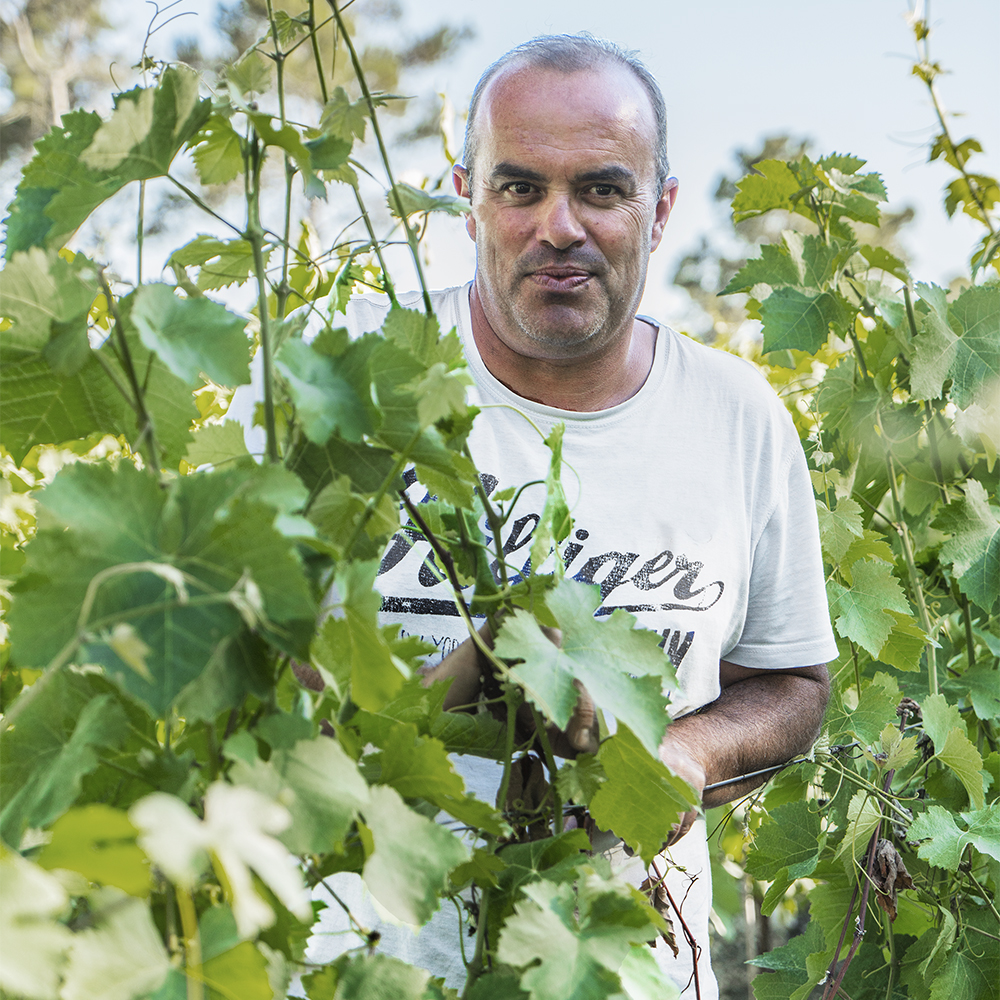
Cyriaque Rozier
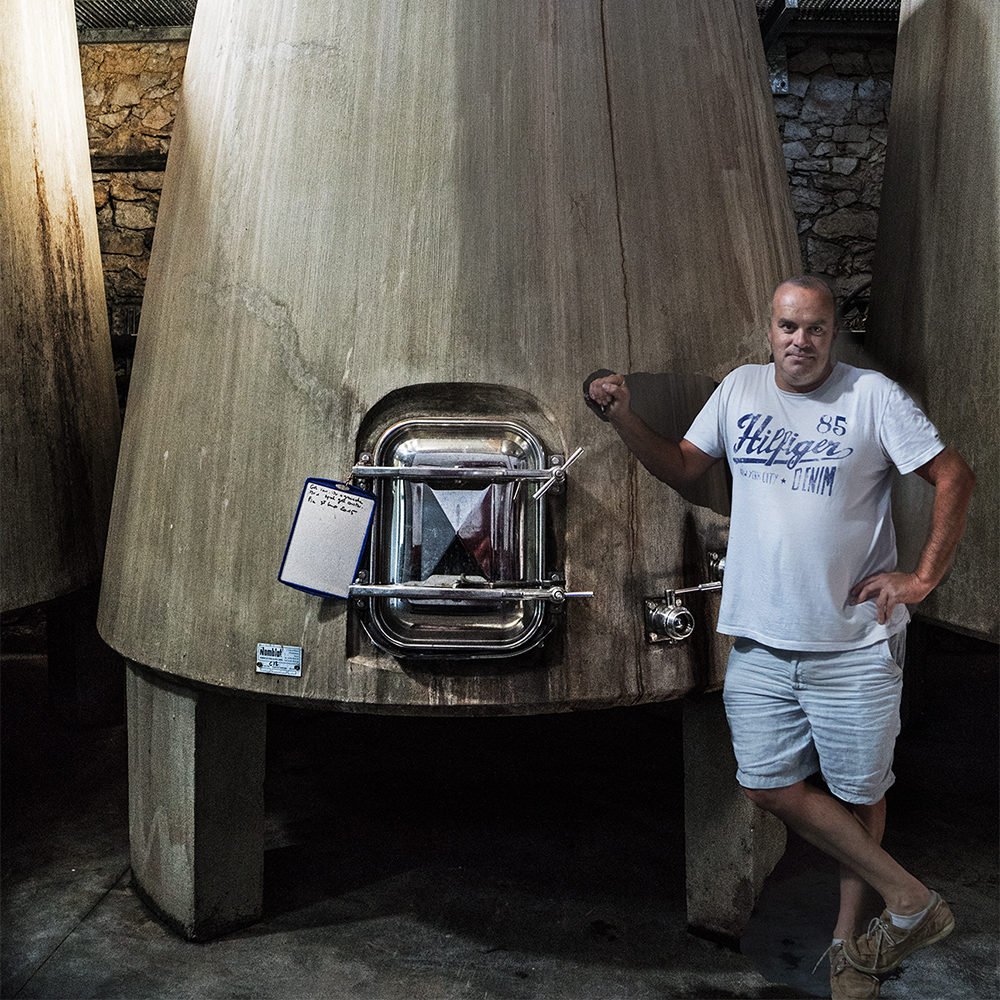
The cellar at Château Fontanès
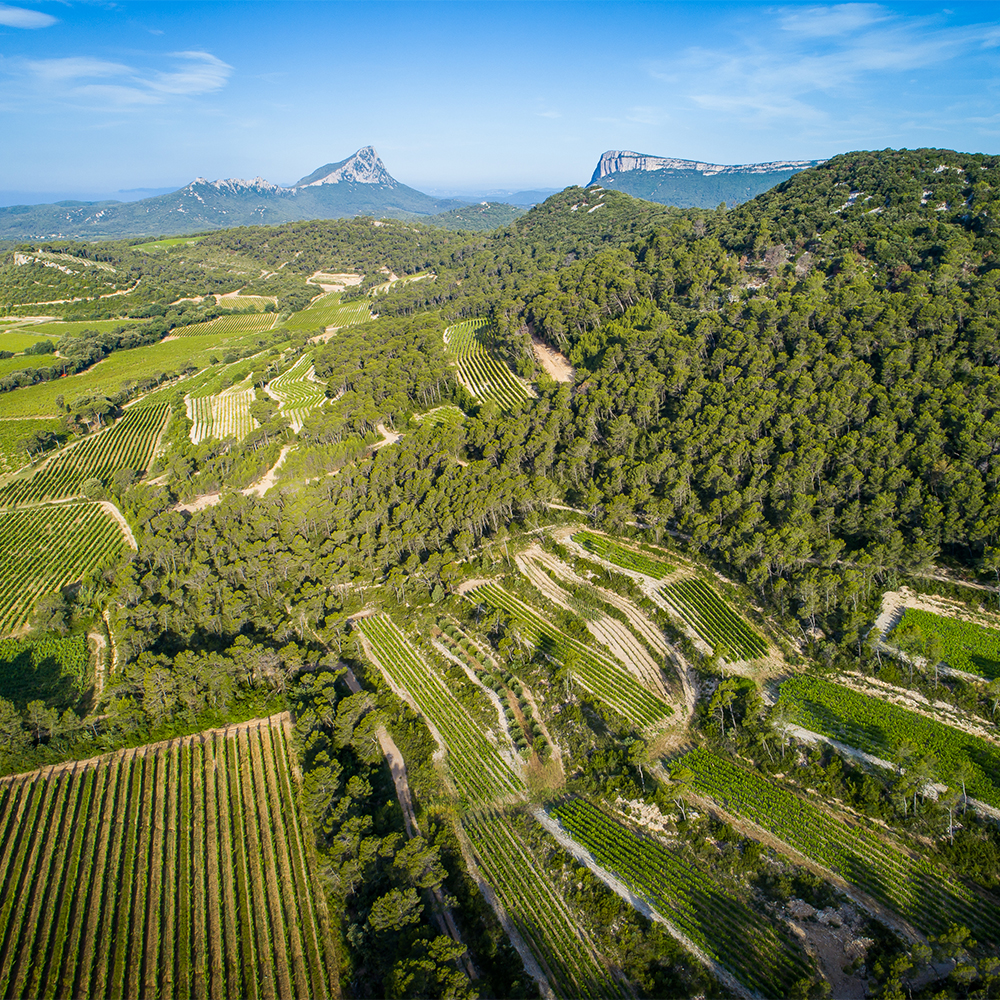
The domaine’s vines with Pic Saint Loup in the distance
When I was an undergraduate at a university with a historic basketball program, members of the team would emerge from time to time to play pick-up games against us mortal humans on a court tucked among the dorms. These were thrilling occasions not only for the students playing with and against them, but also for most everyone from the surrounding residence halls, who relished the chance to watch some of the best young talent in the country play with unbridled flair. I couldn’t help but think of this when I recently tasted Château Fontanès’s Cabernet Sauvignon. Like the D1 athletes, when freed from the high-stakes spectacle, hype, and expectations of competitive and widely publicized games, Fontanès’s Cabernet showed that this normally stately grape can display an exceptionally fun side recalling the verve and soul of its roots. The joy it embodies is so pure that it makes you wonder, why isn’t more Cabernet made this way?
—Tom Wolf
| Wine Type: | red |
| Vintage: | 2023 |
| Bottle Size: | 750mL |
| Blend: | Cabernet Sauvignon |
| Appellation: | Vin de Pays d’Oc |
| Country: | France |
| Region: | Languedoc-Roussillon |
| Producer: | Château Fontanès |
| Winemaker: | Cyriaque Rozier |
| Vineyard: | Planted in 1970, 5 ha |
| Soil: | Clay, Limestone, Marl |
| Farming: | Organic (practicing) |
| Alcohol: | 14.2% |
More from this Producer or Region

2022 Pic Saint Loup Rouge
France | Languedoc-Roussillon
There is something timeless to La Roque’s Pic Saint Loup, its herbal bouquet and rich, fleshy texture, all free from any hint of modern trappings.

2023 Banyuls “Rimage”
France | Languedoc-Roussillon
Imagine a red, Grenache-based Sauternes, full of earth and spice, and you’ll have a decent idea how delicious this Banyuls tastes.

2024 Languedoc Blanc “Cuvée Sainte Agnès”
France | Languedoc-Roussillon
Evokes citrus rind, herbs, and sea spray and boasts all of the freshness of a Mediterranean breeze.

2025 Languedoc Rosé “Gris de Gris”
France | Languedoc-Roussillon
A cold glass hits the spot every single time, bursting over the taste buds with bright citrus, wild strawberry, and a juicy finish that makes one’s mouth water in anticipation of the next sip.

2022 Pic Saint-Loup Rouge
France | Languedoc-Roussillon
Maybe it’s the biodynamic farming, but these wines always seem to have an extra gear when it comes to aromatics and sheer deliciousness.

2022 Corbières Blanc “La Bégou”
France | Languedoc-Roussillon
Just different and obscure enough to deliver the thrill of introducing someone to a gorgeous wine that is familiar, but new.

2023 Saint-Chinian Blanc “Montmajou”
France | Languedoc-Roussillon
The Jurassic limestone soil and high elevation lieu-dit where the name “Montmajou” springs from lend this blanc a lean elegance.
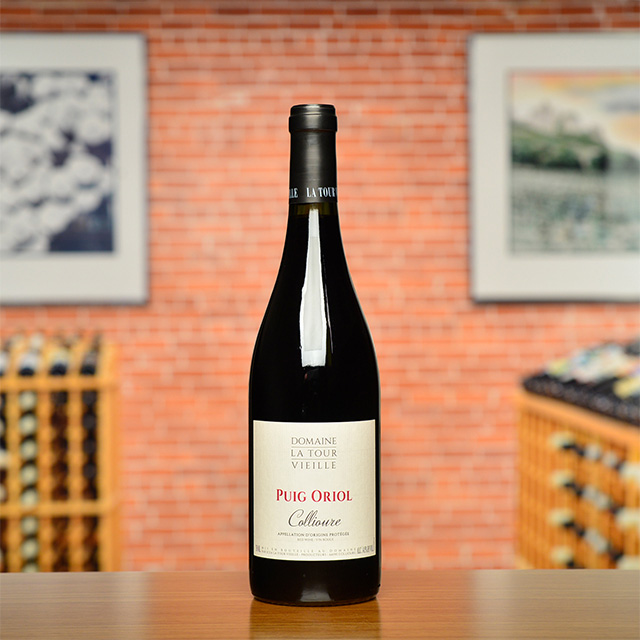
2022 Collioure Rouge “Puig Oriol”
France | Languedoc-Roussillon
A brooding, wild beast with hints of black fruit and Mediterranean herbs, this is a portal to Catalonia’s stunning seaside vineyards.

2022 Vin de France Blanc de Voile
France | Languedoc-Roussillon
If you’re a fan of Jura’s vin jaune or fino and manzanilla sherry, find yourself a new friend in this rare bottling from Ludovic Engelvin.
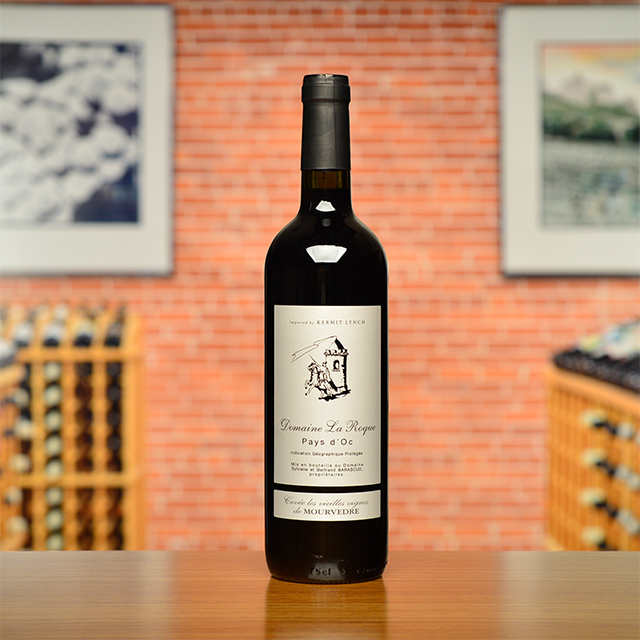
2021 Pays d’Oc Rouge “Les Vieilles Vignes de Mourvèdre”
France | Languedoc-Roussillon
One of the greatest values we import from any region.
 /
/
About The Producer
Château Fontanès
About The Region
Languedoc-Roussillon

Ask wine drinkers around the world, and the word “Languedoc” is sure to elicit mixed reactions. On the one hand, the region is still strongly tied to its past as a producer of cheap, insipid bulk wine in the eyes of many consumers. On the other hand, it is the source of countless great values providing affordable everyday pleasure, with an increasing number of higher-end wines capable of rivaling the best from other parts of France.
While there’s no denying the Languedoc’s checkered history, the last two decades have seen a noticeable shift to fine wine, with an emphasis on terroir. Ambitious growers have sought out vineyard sites with poor, well draining soils in hilly zones, curbed back on irrigation and the use of synthetic fertilizers and pesticides, and looked to balance traditional production methods with technological advancements to craft wines with elegance, balance, and a clear sense of place. Today, the overall quality and variety of wines being made in the Languedoc is as high as ever.
Shaped like a crescent hugging the Mediterranean coast, the region boasts an enormous variety of soil types and microclimates depending on elevation, exposition, and relative distance from the coastline and the cooler foothills farther inland. While the warm Mediterranean climate is conducive to the production of reds, there are world-class whites and rosés to be found as well, along with stunning dessert wines revered by connoisseurs for centuries.
More from Languedoc-Roussillon or France
2022 Languedoc Blanc “Les Cocalières”
Domaine d’Aupilhac France | Languedoc-Roussillon
2020 Faugères “Jadis”
Domaine Leon Barral France | Languedoc-Roussillon
2022 Pic Saint Loup Rouge
Château La Roque France | Languedoc-Roussillon
2023 Saint-Chinian Blanc “Montmajou”
Les Eminades France | Languedoc-Roussillon
2021 Pays d’Hérault Rouge
Domaine de la Grange des Pères France | Languedoc-Roussillon
2022 Languedoc Rouge “Lou Maset”
Domaine d’Aupilhac France | Languedoc-Roussillon
2022 Vin de France Blanc
Domaine Leon Barral France | Languedoc-Roussillon
2021 Faugères
Leon Barral France | Languedoc-Roussillon
2024 Grenache Gris
Mas Champart France | Languedoc-Roussillon
2024 Collioure Blanc “Les Canadells”
Domaine La Tour Vieille France | Languedoc-Roussillon
2023 Banyuls “Rimage”
Domaine de la Tour Vieille France | Languedoc-Roussillon
2021 Languedoc Montpeyroux Rouge “Les Cocalières”
Domaine d’Aupilhac France | Languedoc-Roussillon
2022 Languedoc Blanc “Les Cocalières”
Domaine d’Aupilhac France | Languedoc-Roussillon
2020 Faugères “Jadis”
Domaine Leon Barral France | Languedoc-Roussillon
2022 Pic Saint Loup Rouge
Château La Roque France | Languedoc-Roussillon
2023 Saint-Chinian Blanc “Montmajou”
Les Eminades France | Languedoc-Roussillon
2021 Pays d’Hérault Rouge
Domaine de la Grange des Pères France | Languedoc-Roussillon
2022 Languedoc Rouge “Lou Maset”
Domaine d’Aupilhac France | Languedoc-Roussillon
2022 Vin de France Blanc
Domaine Leon Barral France | Languedoc-Roussillon
2021 Faugères
Leon Barral France | Languedoc-Roussillon
2024 Grenache Gris
Mas Champart France | Languedoc-Roussillon
2024 Collioure Blanc “Les Canadells”
Domaine La Tour Vieille France | Languedoc-Roussillon
2023 Banyuls “Rimage”
Domaine de la Tour Vieille France | Languedoc-Roussillon
2021 Languedoc Montpeyroux Rouge “Les Cocalières”
Domaine d’Aupilhac France | Languedoc-Roussillon
Kermit once said...

Kermit once said...
Living wines have ups and downs just as people do, periods of glory and dog days, too. If wine did not remind me of real life, I would not care about it so much.
Promo Code Terms
There are two types of promo codes
1) a code that gives you a percentage off your order
2) a code that gives you a dollar amount off your order
How do promo codes or coupon codes work?
When you place an order with a percentage coupon code, the discount only applies to discount eligible items. An eligible item typically is a product that does not already have a discount. Sampler packs that already have discounts applied to them do not count towards the minimum of 12 eligible items. In your shopping cart, you'll see percentage discounts next to each bottle.
When you place an order with a dollar amount code, the dollar amount is added to your discount. In your shopping cart, the dollar amount is subtracted from your total, and does not show next to each bottle.














